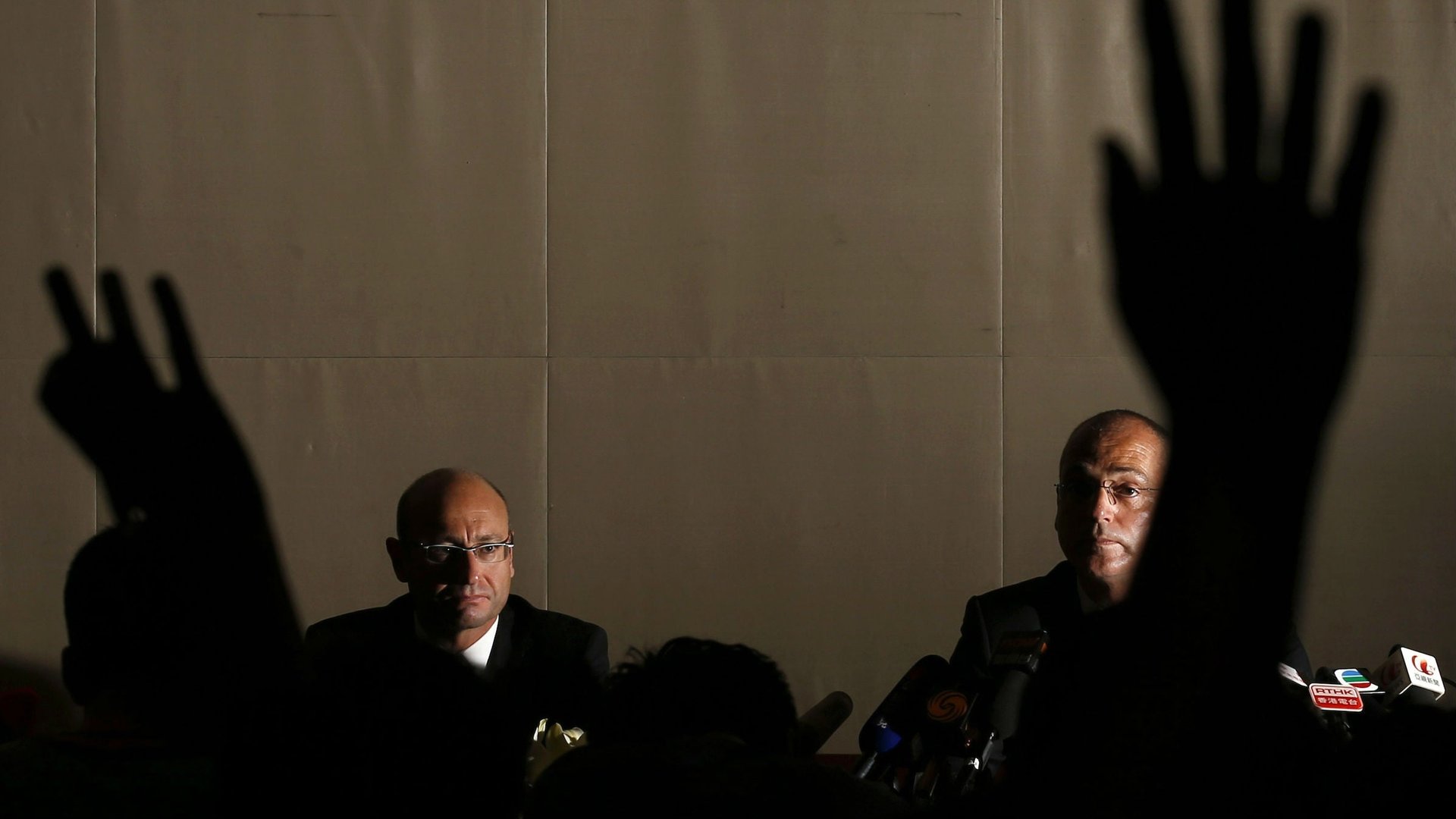Chinese bloggers praise Fonterra for admitting that it tainted their milk formula
Fonterra is in the middle of a public relations disaster in China, after the New Zealand dairy giant discovered that it had sold contaminated ingredients for baby milk powder. But the company’s frankness about its mistake is winning kudos among some Chinese.


Fonterra is in the middle of a public relations disaster in China, after the New Zealand dairy giant discovered that it had sold contaminated ingredients for baby milk powder. But the company’s frankness about its mistake is winning kudos among some Chinese.
Fonterra told customers on July 31 that batches of its whey protein had become contaminated with a bacterium that can cause botulism, a sometimes fatal paralytic illness. (Fonterra’s protein is used in formula sold in China and several other countries.) This is an especially big deal in China, where in 2008 a Chinese company and local authorities covered up the tainting of baby formula that sickened 300,000 infants and killed six. Chinese customers have been turning to foreign firms like Fonterra ever since.
Yesterday, Aug. 5, Fonterra’s chief executive, Theo Spierings, flew to China to apologize in person at a press conference in Beijing. Chinese retailers have been issuing recalls of infant formula using Fonterra ingredients and authorities have restricted imports of Fonterra’s whey product.
So far, there have been no reports of children falling ill from milk formula made from its products. That Fonterra nonetheless confessed to its error has won it plaudits from bloggers on China’s microblogging site Sina Weibo. One wrote, (registration in Chinese required) “They inspected themselves and found a problem, and were brave enough to report it.” Using a name for the Chinese government that’s often employed sarcastically online, the blogger added, “Would the celestial empire have as much courage?” Another said, “There are no companies in China that are so conscientious as to reveal their own shortcomings. Such is the difference between China and New Zealand.” One user wrote (registration required), “To have courage to apologize is a good thing.”
This positive reaction is notable not least because Fonterra’s PR efforts have in other respects been somewhat cack-handed. The company’s Chinese representatives handed out envelopes of cash, “media allowances”, to reporters before its press conference in Beijing. (Fonterra says it knew nothing about the payments.) Spierings also mistakenly referred to China as the “Republic of China“, the title Taiwan uses to refer to itself, during his apology.
The comments on Weibo also contrast with the somewhat triumphant tone in Chinese state media. Xinhua ran an editorial proclaiming that foreign infant formula—so sought-after in China it’s caused shortages in Hong Kong and elsewhere—is no safer (link in Chinese). The People’s Daily called on Chinese consumers not to “blindly trust” (link in Chinese) foreign brands. But even if that trust has been dented, Fonterra’s honesty may have salvaged it.
(Chen Yifei contributed to this report.)